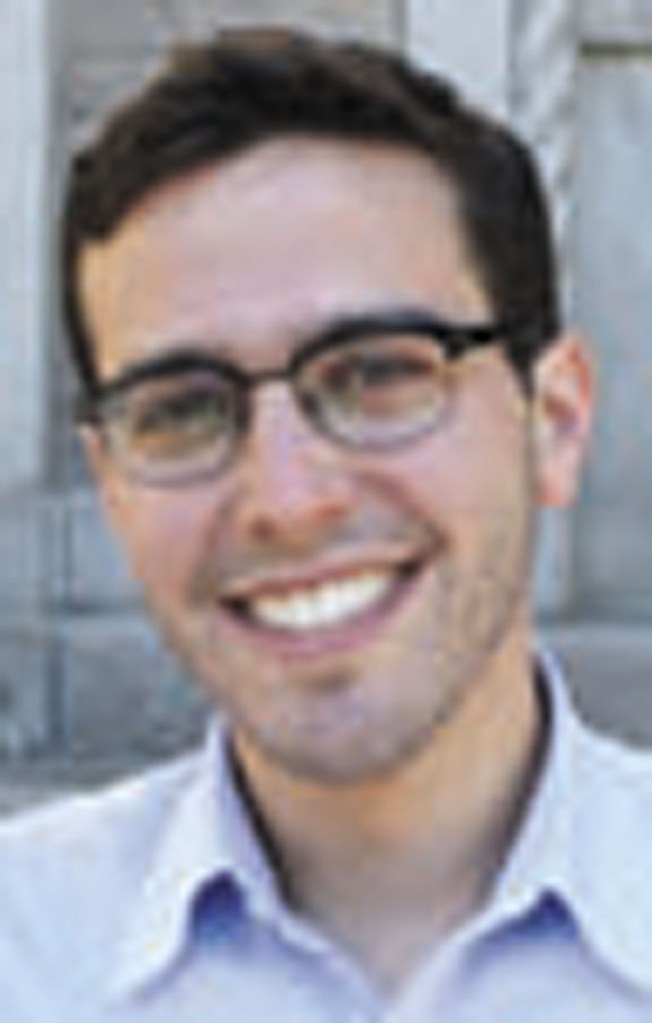HALLOWELL — Seth Freed Wessler spent several months last year flying around the country, interviewing immigrants in federal detention centers.
The work brought attention to the intersection of the immigration enforcement and child welfare systems, where thousands of children are separated from parents facing deportation.
Wessler, who grew up in Hallowell, hopes his investigative report for Colorlines.com will receive even more attention after it earned him a national journalism award, the Hillman Prize for Web Journalism.
“My hope is that winning this prize will provide a platform for more people to hear about this story,” said Wessler, son of Ellen Freed of Hallowell and Stephen Wessler of Litchfield.
Wessler, 27, got his start telling other people’s stories as a senior at Hall-Dale High School. He graduated in 2002, before students had to complete a capstone project as a diploma requirement.
But he proposed his own multimedia project.
“Seth is a smart kid. By the time he had gotten to his senior year he was pretty much tired of school,” said Mike Walley, Wessler’s English teacher, who has since retired. “Rather than him sitting through my English class, he came to me one day and asked if we could come up with some sort of project.”
Wessler decided to explore the way people build their identities and find a place in a community. He interviewed five people, including a military veteran, an elderly woman and a young man who immigrated from East Africa as a refugee.
Wessler said the project, which included poetry, photography and song in addition to long-form writing, made him reflect on his own identity as a Mainer and what it meant to be an engaged citizen committed to social justice.
“The thing that that project did for me was for the first time make me realize the power of stories and storytelling as tools to think about larger social problems, political policy problems and so forth,” Wessler said. “There really was value in listening to, asking questions about, and uncovering, stories.”
At the time, Wessler didn’t consider a career in journalism. He attended Hampshire College in Amherst, Mass., then moved to New York to work for the Applied Research Center, a racial justice think tank that publishes Colorlines.
Over time, Wessler began writing more for Colorlines, and he is now a staff writer for the online magazine.
In 2008, Wessler and a colleague wrote a story about a woman in California whose child was placed for adoption when she was deported. The woman had been adopted from Russia as a child, but she did not become a permanent resident.
It was the first of many similar stories Wessler heard.
“It was really looking like it was a systemic problem,” Wessler said. “But nobody had any idea how big of a problem it was.”
The U.S. government is deporting record numbers of people. Many of them are parents with U.S. citizen children.
Through surveys, interviews and Freedom of Information Act requests, Wessler and colleagues estimated conservatively that 5,100 children are in the foster care system because their parents have been detained or deported. They expect 15,000 more children to face similar situations in the next five years.
Although federal policy calls for deported or detained parents to be able to choose whether their children will join them, that has not been the case, Wessler said.
“I met dozens and dozens of parents who were inside detention centers, or who had already been deported, who couldn’t get their kids back, who were lost to them,” he said. “The detention system really removes people from any decision making about what happens to their kids.”
Walley, the English teacher, said Wessler has always been driven by his interest in people.
“He’s going to get where he gets because of who he is, but that’s not his aim,” Walley said. “His aim, in the larger sense, is to bring more humanity to the world. The fact that he’s out finding out what happens to kids when they get separated from their families, that’s no surprise at all.”
Wessler said his report, “Shattered Families,” has inspired two bills in the California Legislature to address some of the problems.
For him, that reinforces the importance of journalism.
“We think about issues of inequality and of oppression and so forth as intractable, as things that can’t be solved,” he said. “I think that if we ask the right questions and we dig enough to find the right information, then we can figure out the dynamics of what are in fact some complicated problems and point toward what might be some solutions.”
Susan McMillan — 621-5645
smcmillan@mainetoday.com
Send questions/comments to the editors.



Success. Please wait for the page to reload. If the page does not reload within 5 seconds, please refresh the page.
Enter your email and password to access comments.
Hi, to comment on stories you must . This profile is in addition to your subscription and website login.
Already have a commenting profile? .
Invalid username/password.
Please check your email to confirm and complete your registration.
Only subscribers are eligible to post comments. Please subscribe or login first for digital access. Here’s why.
Use the form below to reset your password. When you've submitted your account email, we will send an email with a reset code.